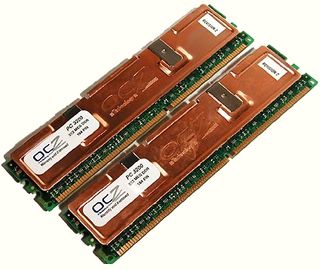Unevenly Matched Mini-Trio: MSI vs. Shuttle vs. Saintsong
The Future Of PCs, Continued
THG dealt with various PC designs very early on. At the end of 2001, the Munich lab tested the first mini-PC Build Your Own Mini-PC For The Office . None of the hand-picked systems had a pre-integrated AGP slot, so computers of this type, with their weak onboard graphics, were tempting to only a few customers. Later on, when the AGP interface was introduced, high-end 3D-graphics like GeForce 4 Ti 4600 or ATi Radeon 9700 Pro even came into use.
But the limits of the compact design are easily reached: a fast and powerful graphics chip or processor uses lots of power, which is associated with high thermal output. This leads to enormous heat generation that can either be controlled with a sophisticated ventilation system that includes a cooling system or high-speed conventional fans. Shuttle - definitely the front-runner among mini-systems - relies on a heat pipe coupled with a variable-speed fan to cool the processor. In past tests, such as in Battle of the Minis: Soltek vs. Shuttle , we saw that with maximum hardware expansion, high heat generation automatically means high noise level. So the conflicting goals are still there: a quiet mini-PC with the functionality of a high-end tower cannot muster the same performance.

All systems are run with this DDR400 memory in 166 MHz CL2 operating mode.
Almost all major motherboard manufacturers rely on this current trend, but no one can capture Shuttle's lead. Our testing panel is made up of three completely different systems: MSI's Hermes 845GV is a classic desktop PC on which a CRT or TFT monitor can be positioned. The design is strongly reminiscent of business PCs from Siemens in the '90s. It is being compared to Shuttle's SB52G2, an advanced version of the SB51G, and the ultra-small PC from Saintsong. In principle, Saintsong's "Latte P4" system is not new: more than six months ago, in the test in The Smallest of Them All: The P4/2400 Micro PC we had a similar computer in the lab. We are eagerly looking forward to the Asus (Pundit) and Gigabyte systems - there were announcements about them in March at Cebit 2003.
Stay on the Cutting Edge
Join the experts who read Tom's Hardware for the inside track on enthusiast PC tech news — and have for over 25 years. We'll send breaking news and in-depth reviews of CPUs, GPUs, AI, maker hardware and more straight to your inbox.
Current page: The Future Of PCs, Continued
Prev Page The Future Of PCs Next Page Shuttle SB52G2: Mini-Server With No AGPMost Popular

